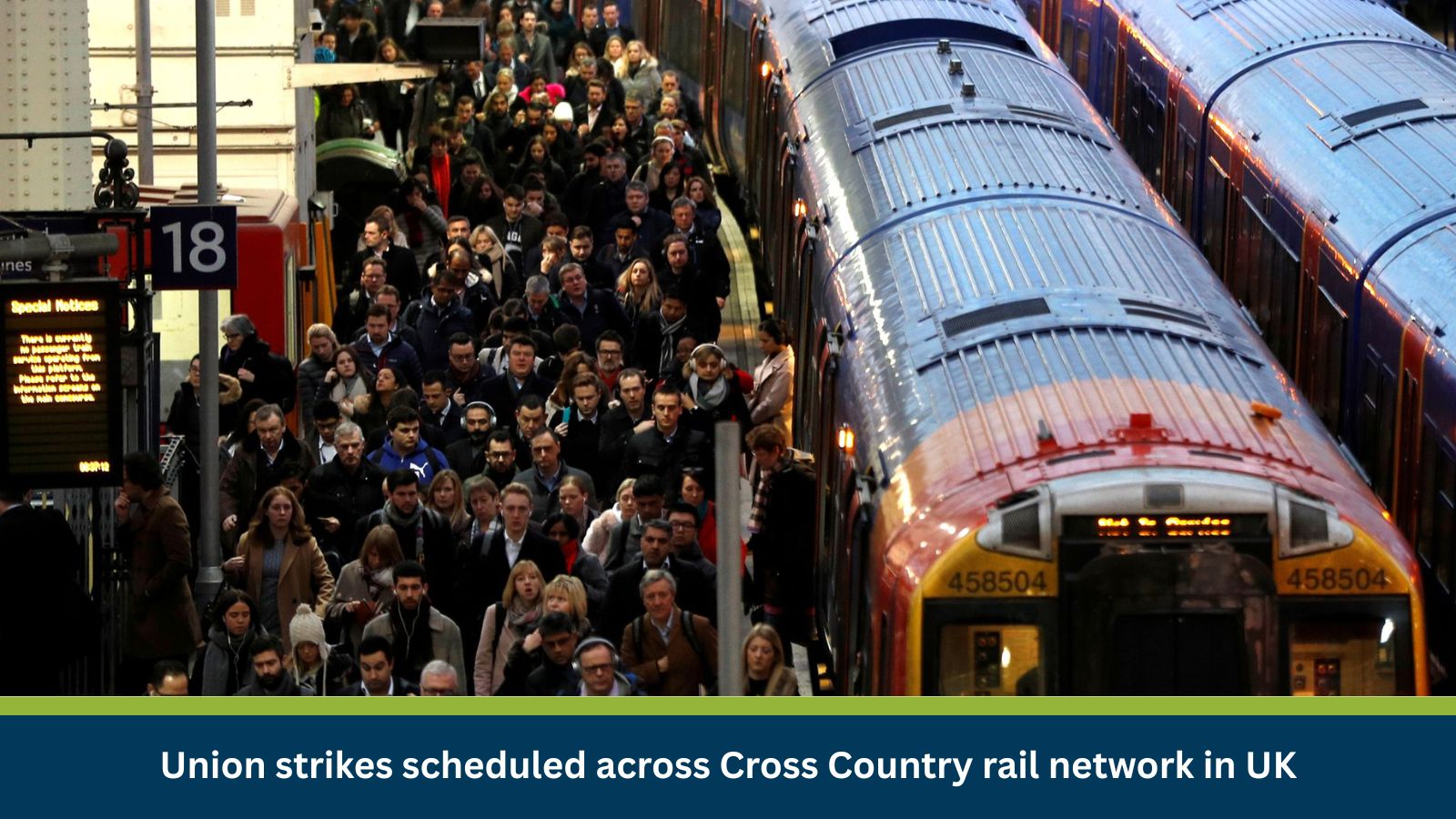What is Risk Analysis in the Context of Civil Disturbance Events?
Civil disturbance risk analysis evaluates how events like strikes and protests impact urban mobility, workplace safety, supply chains, and public services. In the context of the scheduled rail strike in the UK, it is essential for business professionals to prepare for significant disruptions. Historical analysis of similar large-scale industrial actions in the UK consistently shows that such events cause substantial daily life and economic disruption. This analysis helps organizations mitigate risks and ensure personnel safety through timely intelligence.
Executive Summary
- Date of Incident: 23 August 2025
- Location: UK, United Kingdom
- Risk Category: Civil Disturbance
- Severity Score: 4/5
- Confidence Level: 95%
A significant disruption is anticipated across the UK’s CrossCountry rail network from Saturday, 23 August, to Monday, 25 August, due to a scheduled strike by the RMT union. Based on historical analysis of similar industrial actions, this event is expected to cause widespread travel paralysis for passengers. Past strikes have consistently led to significant service cancellations, increased congestion on alternative transport routes, and a notable economic impact on businesses. The forecasted impact is severe given the broad geographic reach of CrossCountry’s network, affecting intercity travel across England, Scotland, and Wales.
Known Hotspots and Sensitive Areas
Key sensitive areas include major transport hubs and city centers served by CrossCountry. This includes Birmingham New Street (a primary hub), Manchester Piccadilly, Bristol Temple Meads, Reading, Edinburgh Waverley, Glasgow Central, Plymouth, Newcastle Central, and York. These areas will experience severe overcrowding on remaining transport options or increased footfall from frustrated travelers. Major airports with rail links (e.g., Birmingham Airport, Manchester Airport) may also see indirect impact due to disrupted onward travel.
Impact on Transportation and Services
The CrossCountry rail network will experience widespread and severe disruption. Services connecting major cities across England, Scotland, and Wales are expected to be heavily reduced or entirely cancelled. This will severely impact intercity travel, commuter flows, and connections to major regional and national hubs. Alternative transport methods like coaches and private vehicles will see significantly increased demand, leading to traffic congestion on major roads paralleling rail lines. Businesses can expect significant absenteeism, impacting productivity and business operations. While freight services are often less affected, major rail disruptions can cause knock-on delays for logistics, impacting deliveries and increasing costs due to diversions to road transport.
Recommended Actions
- Implement a flexible work policy, prioritizing remote work for non-essential on-site roles. For roles requiring physical presence, pre-arrange alternative transport solutions or adjust shift schedules to mitigate attendance issues.
- Operations and procurement teams should immediately assess the impact on inbound materials and outbound goods reliant on Cross Country rail freight. Proactively re-route critical shipments via road haulage or alternative carriers.
- Develop a clear, pre-approved communication plan for external stakeholders, including clients, partners, and suppliers. Activate the internal Business Continuity Team (BCT) to coordinate cross-departmental efforts and monitor staff availability and logistical challenges throughout the strike period.
- The British Transport Police handles incidents on the rail network. For general emergencies, dial 999.
Emergency Contacts
- Police: Dial 999 in an emergency. For non-emergencies, dial 101.
- Fire Department: Dial 999 in a fire emergency.
- Ambulance: Dial 999 in a medical emergency.
- National Emergency: 999
Final Thoughts
The baseline scenario anticipates the strike to proceed as announced and conclude within 24-48 hours with manageable disruption. A moderate escalation could see further, staggered industrial action if the dispute is not resolved, leading to persistent disruption. A severe escalation, though unlikely, could see the dispute widen to other transport sectors, leading to a significant supply chain failure and widespread economic paralysis. Businesses should prioritize employee safety and business continuity planning to navigate this high-risk event. The need for continuous monitoring and preparedness is paramount to managing the inherent volatility of civil disturbance in the region.
Stay ahead of operational risks with real-time alerts, scenario modeling, and expert advisories with datasurfr’s Predict. Start your 14-day free trial of Datasurfr’s Risk Intelligence Platform today.






